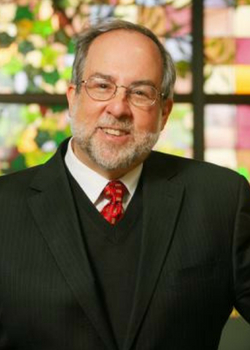Dear Mr. Feinstein,
Let me be the first to welcome you to the wonderful world of AARP. Attached you will find your provisional membership card. Soon, the world of AARP benefits will be yours.
So begin my sunset years.
I started to fill out the form. After all, who can resist the promise of discounted early-bird dinners? But there’s a sense of depression. Mine was the generation warned never to trust anyone over 30! Teenage, college, marriage, children all arrived with excitement and anticipation. Not the dread that I’m feeling. Why do I feel so unprepared for this stage of life? Where do we learn how to grow older?
There is a strain of popular American culture that identifies growing older with personal diminishment and decline. American life is lived in the future tense; tomorrow is always superior to yesterday. Everything that’s good in America is new and improved. Ever hear of a product guaranteed to make you look older in only minutes a day? Youth means energy, creativity, possibilities. Old is used up.
What does it mean to grow older in America? "AARP," the American Association of Retired Persons. Retirement is a form of disengagement. To retire is to give up, to surrender. One retires when one is exhausted, depleted, spent. No matter how cheery and clever those ads for Viagra we can read the subtext: At this age you can’t do what once came so naturally. Not without strong medicinal intervention.
This is the strain of American culture that defines growing older as an inevitable resignation to diminished capacity. "Learn to act your age!" we are admonished. We poke fun or pity the man driven to acquire a new racy red sports car, a new hair piece, or a girlfriend half his age. This is Kevin Spacey’s character in the film American Beauty – devoting all his waking hours to seducing his teenage daughter’s cheerleading partner -- obsessed with this young woman as if she were the font of all the vitality and purpose missing in his life.
"Hope I die before I get old!" sang Roger Daltry of the Who, in the 60’s rock epic, "My Generation." And he was prophetic: A generation that dreads and resents growing older, a generation that sees no possibilities in growing older, is a generation with no future, a generation that is spiritually dead.
Here’s an alternative, from Pirke Avot, The Talmudic Wisdom of the Sages:
At age 5, one studies Bible.
At ten, the Mishna.
At thirteen, one is responsible for the mitzvoth.
At fifteen, one studies Talmud.
At eighteen, one is ready for marriage.
At twenty, one begins a career.
At thirty, one is at the height of one’s powers.
At forty, one achieves understanding.
At fifty, one is prepared to give wise counsel.
At sixty, one is given the deference of seniority.
At seventy, one is considered a sage.
Eighty is the age of heroic strength.
In the Talmud’s vision, life is not a tragedy of decline. Each stage of life has its own beauty, value, and measure of success. Growing older is not about the surrendering the qualities that make us vital and beautiful. In each age of life, we gain something. Each stage of life brings new qualities – the very qualities we associate with God -- learning, love, creativity, wisdom, power. At each successive stage of life, we gain an opportunity to appropriate aspects of divinity. Growing older, we grow Godly.
In the Talmud, the development of the human being doesn’t stop with the end of childhood. Grown-ups are meant to keep on growing. 40, 50, 60, 70 -- each decade brings its own qualities. We’re not finished once we become adults. The object of childhood is literacy. The object of our 20’s is intimacy. The object of our 30’s is achievement. The objects of later adulthood – our 40’s and 50’s and beyond, are of a different order: bina, aitza, zikna, sayva, understanding, counsel, seniority and wisdom. These are qualities of the inner life, qualities of the soul.
When called upon by God to liberate his people, Moses complained, "I am no man of words." (Exodus 4:10). This week, he stands before his people, now forty years older, with something to say: "These are the words Moses addressed to all Israel…" (Deut 1:1). To reach old age is to acquire words, devarim -- moral substance, a life message.
This is the Jewish truth of adulthood. Our importance is measured, not by the power and prestige we accumulate, but by the larger purposes we serve. A life is validated by its message, its Torah, a Torah that can grow so much deeper as we grow older.
Shabbat Shalom.

